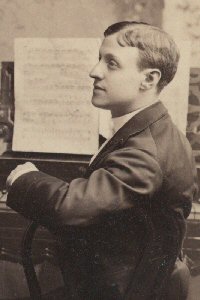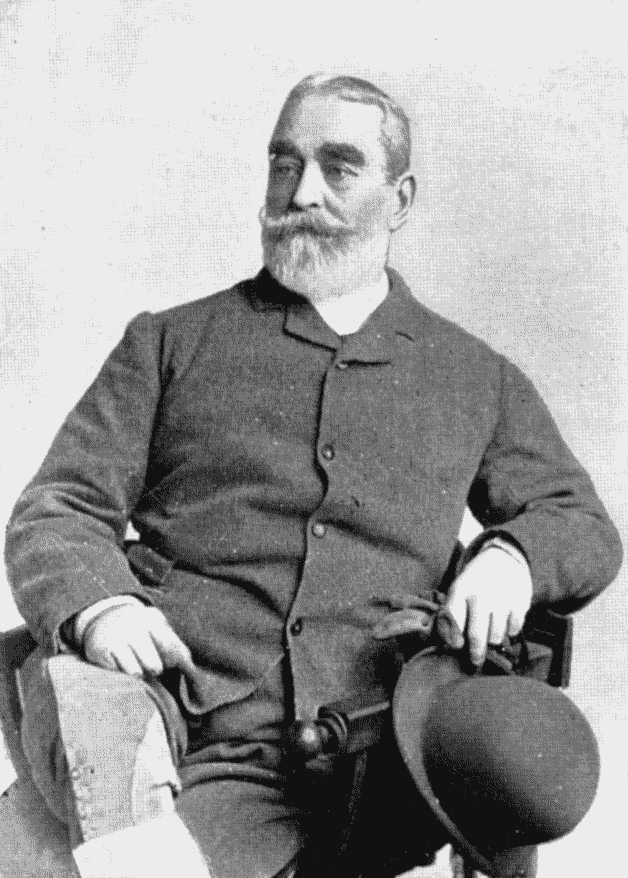Michael H. Hardern
Operetta Research Center
31 January. 2016
Retrospect Opera, a registered charity in Britain, has launched a project to record the operetta Pickwick (1889) by Sir Francis Burnand and Edward Solomon.

Composer Edward Solomon.
Solomon was one of the leading composers of operetta in Britain in the 1880s and 90s. He died at age 39, by which time he had written dozens of works produced for the stage, including several for the D’Oyly Carte Opera Company, including The Nautch Girl. He was regularly compared to the other D’Oyly Carte star composer: Arthur Sullivan.
Amazingly, though, this will be the first time any of Solomon’s music has been recorded. Burnand claimed, with good reason, to be the father of English operetta, having written Cox and Box for Sullivan as early as 1866. Pickwick is a work in the same vein as Cox and Box and contemporary reviewers immediately noticed the similarity.
Pickwick is derived from Charles Dickens’s classic novel, The Pickwick Papers, and Retrospect Opera are promoting it as the first great Dickensian musical. The role of Mr. Pickwick will be sung by Simon Butteriss.

A scene from the “Pickwick Papers”: The Goblin and the Sexton.
Retrospect Opera relies on donations from enthusiasts to make their recordings possible. Anyone wishing to see Pickwick revived is warmly encouraged to visit the Retrospect website. Anyone who donates £25 or more to the project will get their name on the Retrospect website and a copy of the recording when released. Larger donations get additional rewards.

The “father of British operetta”: F. C. Burnand.

To be honest, this 40 minute work is a disappointment! Musically it is nowhere near the same level as Sullivan or German, and the dialogue has long ago lost any wit it might have had. Performances are enthusiastic but lack direction, and the use of a boy treble who cannot sing in tune, and whos voice is unable to blend with the other singers in ensemble numbers is painful! The piano accompaniment is too obtrusive.
Far more worthwhile is the other work on the CD: a short piece with three songs by George Grossmith.
Sheer delight from start to finish, thanks to Solomon’s amazing score. Burnand’s libretto shows that he was at the peak of his powers (such as they were) with Cox & Box; twenty years later, he’s still trying to recapture the magic, with indifferent success. But although his sense of humour is firmly stuck in the 1860′s, unable to reach beyond forced rhymes and puns, his skill with verse-forms and metre inspires Solomon, as previously Sullivan, to heights of pure joy…
Solomon’s music owes nothing to Sullivan; it draws on the music hall and the dance hall rather than the concert hall, resulting in a stream of fresh, captivating melody, bounding with energy and fizzing with wit and good humour. This may be the first recording of his music. It would be a great, great shame if it was the last.
The performances of all three principals are outstanding, although the child is truly awful. It’s a shame the opera sounds like it was recorded in a scout hut, using the piano they found there under a heap of sacks, but the singers, the pianist and above all the work itself are all so good, it really doesn’t matter a bit.